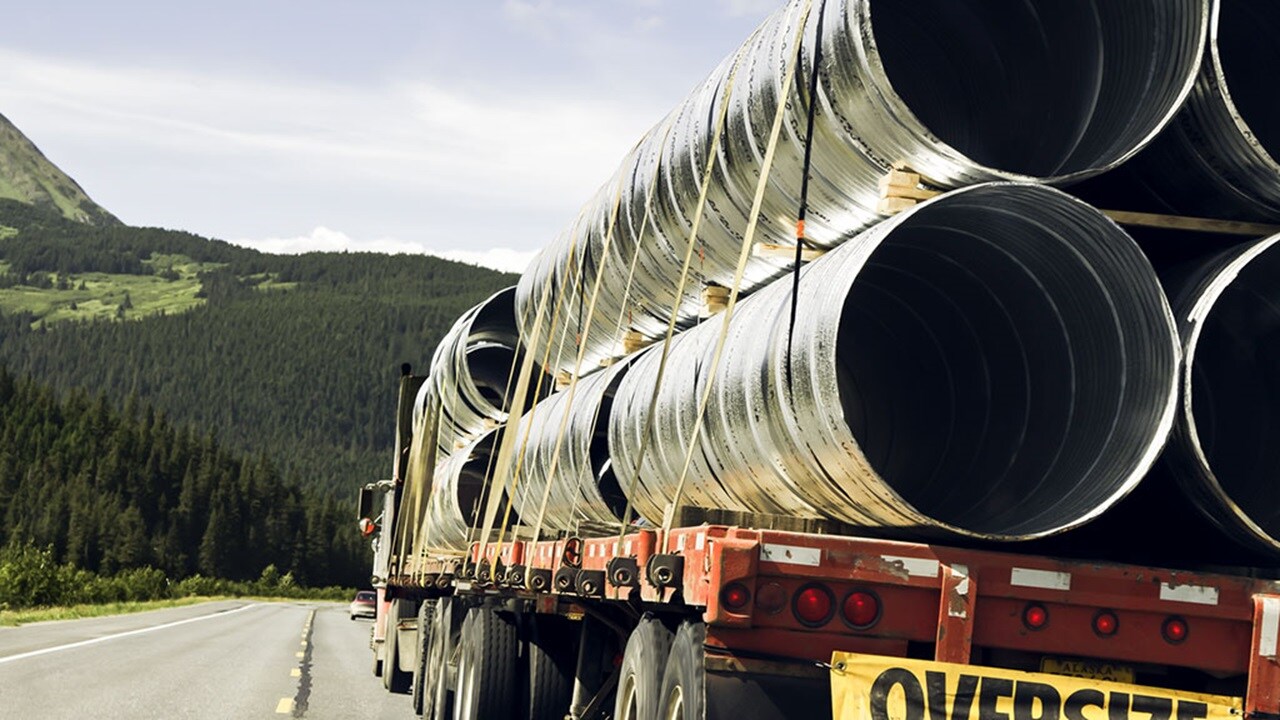In the face of changes to global trade, businesses are seeking greater ease and reliability for their supply chains, as well as opportunities to streamline costs and improve decarbonisation. Recent research by McKinsey found "resilience", "agility" and "sustainability" have established themselves as long-term priorities for businesses. For many businesses, intermodal transport – and, more specifically, combining ocean with inland transportation – has been an important part of achieving this.
Inland transportation covers all transport over land – truck, rail and barge, but excludes air and ocean transport. Intermodal transportation, meanwhile, refers to moving freight by two or more forms of transport and can be any combination of truck, rail, barge, air, and/or ocean. In 2021, the intermodal freight transportation market was already valued at USD 35 billion. It is recording a steady compound annual growth rate (CAGR) of over 16% and will be worth more than USD 117 billion by 2029, according to Maximise Market Research. Today, the OECD calculates that about 90% of the world’s traded goods are transported by ocean. Inland transportation is an indispensable complement to ocean, because – in all cases – freight needs to get to and be taken out of the port. As a result, using an ocean and inland transportation solution is one of the most common intermodal choices and one that can make a significant difference to businesses.
So, why would a business choose an ocean and inland integrated solution? What are the inland transportation options available? And what are the benefits of using a logistics partner to coordinate the transfer from one transportation mode to another?
Ocean plus inland transportation – the benefits
There are several benefits for a business when they combine ocean transport with either intermodal truck, rail, or barge inland transportation. In some cases, the benefits are enhanced even further when a business works with a trusted logistics partner. They include:
- Convenience - when ocean and inland transportation are combined, a business no longer needs to get in touch with multiple suppliers. The one trusted logistics partner can organise and oversee the transfer of cargo from door-to-door. This ensures ease for sourcing, planning, and executing logistics activities. Invoicing is also simplified because everything can be included on one bill. The right logistics partners can offer local expertise and access to a global network of assets, while some will also offer the added convenience of bundling other services such as insurance or customs services.
For businesses transporting temperature-controlled, sensitive, dangerous and high-value cargo such as chemicals or pharmaceuticals for example, combining ocean and inland transportation with a logistics partner helps ensure the safety of the goods with minimal intervention. For example, a chemicals company can choose a logistics partner that understands how to handle their goods with care and ensure safety and compliance protocols are met on behalf of the businesses. - Flexibility - A recent survey by Logistics Management found 72% of businesses are still dealing with global supply chain disruptions, while 58% are struggling with ongoing transportation capacity shortages. In this environment, flexibility – facilitated by supply chain mobility and agility - are essential. With the right logistics partner overseeing the transfer from ocean to inland transportation, businesses secure consistent access to a range of a reliable transport options. In the face of disruption, the business can work with its logistics partner on a fast, effective response.
This flexibility is key for businesses across industries. A retail business, for example, relies on the constant flow of goods. In the face of a disruption, a retail business that has combined its ocean and inland transportation can easily work with its logistics partner to switch to alternative and/or faster transportation modes so that its timelines are unaffected and end-consumers needs are met, as planned. Similarly, flexibility means a business can make decisions to best fit their needs and those of their customers, whether that is around faster delivery time or lower shipping costs. - Visibility - Supply chain visibility goes hand in hand with reliability and is a central concern for businesses – you can’t have one without the other. In 2022, 45% of businesses told McKinsey they lacked visibility. Integrated transport covering ocean and inland services managed by a logistics partner helps resolve that issue, allowing for better data sharing and real-time cargo tracking. It allows for more transparency and accuracy around delivery times. This is enhanced further when transportation is combined with other services, such as customs.
In the automotive industry just-in-time supply chains are common and rely on the right materials arriving at precisely the right time. Visibility and reliability are essential and combining ocean and inland transportation can help ensure components are delivered when they are needed. It paves the way for seamless switching from one mode of transportation to the other. - Agility - accessing new markets can be a complex and time-consuming process. For example, the business needs to identify and vet local suppliers, agree on contract terms and conditions, negotiate rates, onboard a new supplier. This can take several months to navigate. When using a logistic partner that offers a combination of global network and local market expertise, the process of expanding to new geographies can be simplified.
- Cost-effectiveness - in logistics, successful cost-effectiveness is the ability to manage resources to reduce costs without sacrificing quality. When a logistics partner supports a business by adding an intermodal option to their ocean transport, it helps streamline operations and improve efficiency. Similarly, because cargo is kept moving, detention and demurrage charges are kept to a minimum. In other words, handling time, labour costs, storage, and packing costs are all reduced, and cost-effectiveness is maximised.
- Decarbonisation - Gartner’s most recent CEO survey showed "sustainability" is the fastest-growing strategic business priority – up 292% since 2021 and now in the top 10. Working with a logistics partner to combine ocean and inland transportation, a business can reduce greenhouse gas (GHG) emissions by opting for transport modes like rail and barges, or favouring electrified transport or options run on biofuels.

Meeting your needs – and your customers’ – with intermodal transportation
When a business combines ocean and inland transportation, it can tap into more convenience, flexibility, visibility, and streamlined costs. By choosing the right logistics partner, a business can have a single point of contact that moves its freight and the transparency it needs to make good, effective decisions. Intermodal transportation, in this sense, can be part of a bigger strategy to improve supply chain resilience, agility, with the potential to reduce a company’s GHG emissions footprint.
Sign up to The Logistics Pulse newsletter
You did it, welcome onboard!
We're sorry, but there was a problem sending your contact request.
Please review the form fields and ensure all required information is provided correctly. If the issue persists, please contact our support team for further assistance.
Sign up to The Logistics Pulse newsletter
Receive our insights directly in your mailbox by signing up through this form and enter a world of truly integrated logistics. Get inspired by our selection of articles that help you navigate supply chains, understand industry trends, and shape your logistics strategy. You can unsubscribe anytime.













